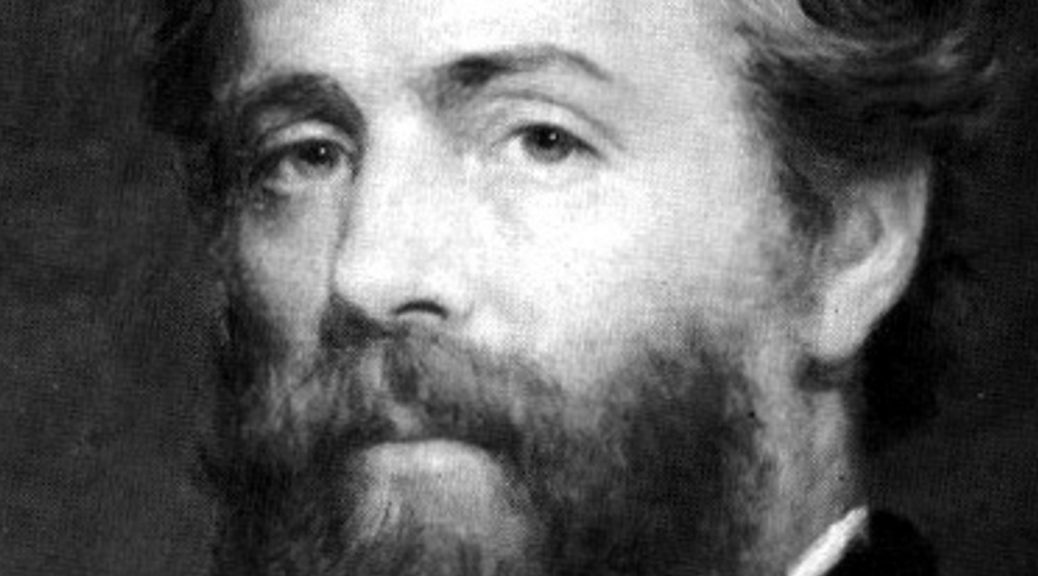HERMAN MELVILLE was born on this date (d: 1891) American novelist and author of the iconic Billy Budd, and Moby Dick; Now considered to have been bisexual, more and more critical scrutiny is focusing on the elements in Melville’s work impinging on a host of new areas, among them post-colonialism and imperialism, race and ethnography, internationalism, body criticism and even ecology.
The 1855 short story “Benito Cereno” is one of the few works of 19th century American literature to confront the African diaspora and the violent history of race relations in America, while “The Paradise of Bachelors and the Tartarus of Maids” and Billy Budd have been particularly rich for scholars of gender studies and queer studies.
Critics have long noted the basic theme of male love that runs through the works of this important American writer, from the amusing and sensuous scenes between Ishmael and Queequeeg sharing the same bed in Moby Dick, to the sinister fate of Billy Budd, the “Beautiful Sailor.”
Only recently however, has any scholar dared to examine the handsome Melville’s life in relation to his works and suggest not only that Melville was most certainly a latent homosexual, but that the great love of his life was none other than the lamentably heterosexual and completely unattainable Nathaniel Hawthorne.
In his biography of Melville, Edwin Haviland Miller cites example after example of the younger writer’s love for the older novelist, but none as astonishing as Melville’s review of Hawthorne’s Mosses from an Old Manse (1850). Melville, w ho had only recently met Hawthorne and was in a state of exhilaration from their meeting, did not want his new friend to know that he was to review his book in The Literary World. He therefore disguised his identity by signing the review, “By a Virginian Spending time in Vermont.” His infatuation with the famous writer is reflected in an extended metaphor of insemination, in which Hawthorne is clearly penetrating the love-sick Melville: “Already I feel that this Hawthorne has dropped germanous seeds in my soul. He expands and deepens down, the more I contemplate him; and further and further, shoots his strong New England roots into the hot soil in my Southern soil.” Incredible!
